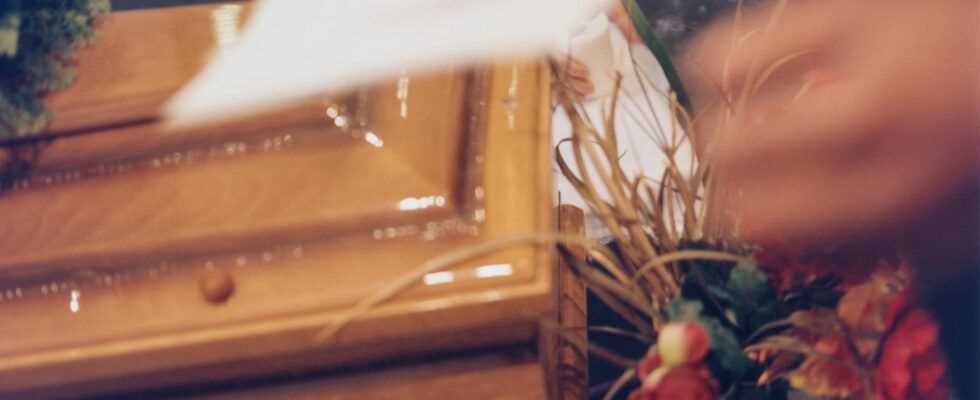ReportingMoved by the dehumanized burials and the images of coffins piled up in Rungis at the height of the coronavirus pandemic, they converted to the funeral sector. By vocation, desire to “repair” the trauma, but above all with the ambition to reinvent the rites.
Aurore Merchin is not about to forget this winter morning, at the end of 2018, in the Père-Lachaise cemetery, in Paris. After waiting a while for the funeral director, who was late, she found herself, at the end of the ceremony, her hands covered with the ashes of her stepfather because the urn had been poorly sealed. . For this bubbly and passionate former journalist, everything on this snowy day was painful. A spoiled funeral that obsesses him.
Two years later, during the first confinement due to the Covid-19 epidemic, she was stunned by the televised images of hundreds of coffins stacked in a Rungis warehouse due to the saturation of the funeral chambers of Parisian hospitals. No one knows what to do with the deaths of Covid-19. “I had the intuition that we were experiencing a major anthropological break, and that the whole of society was going to fall into traumatic mourning”, she says. At 42, Aurore decides to change her life and make death her job.
She embarked on training as a funeral counselor provided by the National School of Funeral Trades (Enamef). After a month of theoretical courses and practical workshops, she won the written and oral tests with flying colors last spring. She created an Instagram account (@ le.chemin.de.traverse_) and devours books on death.
Funeral directors internship
This summer, she surveyed the cemeteries of her vacation spots, in Italy and Tunisia, where individuals collected the bodies of migrants stranded on the beaches to offer them burials. In Paris, she discovers the taphophiles, those passionate about cemeteries, and their fascinating stories. Like that of this old North African who, every day, takes the path to the cemetery of Montparnasse to meditate on the grave of Jacques Chirac whom he wishes to thank for having granted him his French naturalization.
“Funeral rites have existed since prehistoric times, they are the markers of our humanity, explains Aurore Merchin. They were denied during the Holocaust, during which my grandparents and great-grandparents were deported. My passion for this job also comes from these old ghosts. “
In September, she did a one-month practical internship in a funeral agency, which confirmed her choice. “Before, when I explained that I was a journalist, people looked at me almost with contempt, like ‘you are useless’. Now people say to me, “funeral counselor? It’s great !” I feel like I belong to the category of essential trades, as they say today. ”
You have 81.81% of this article to read. The rest is for subscribers only.
